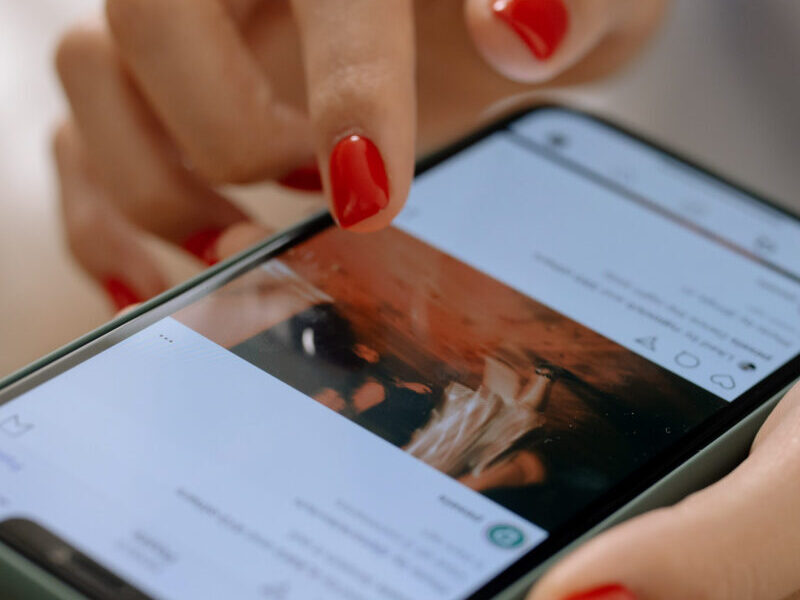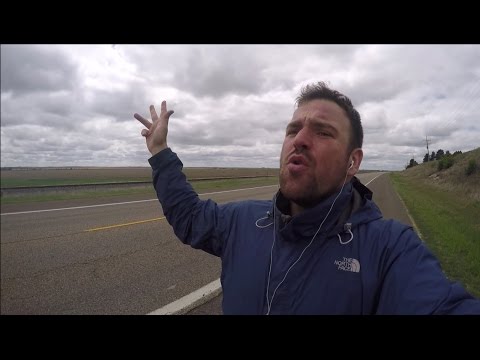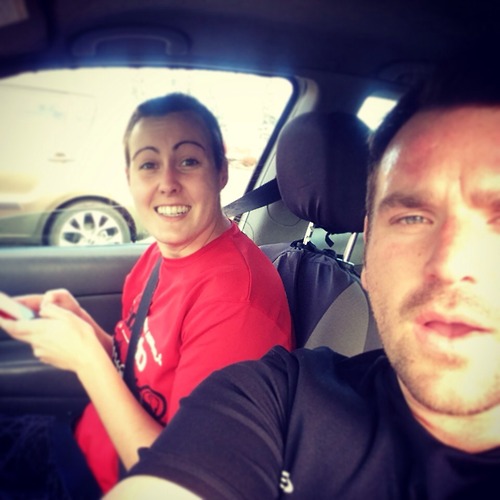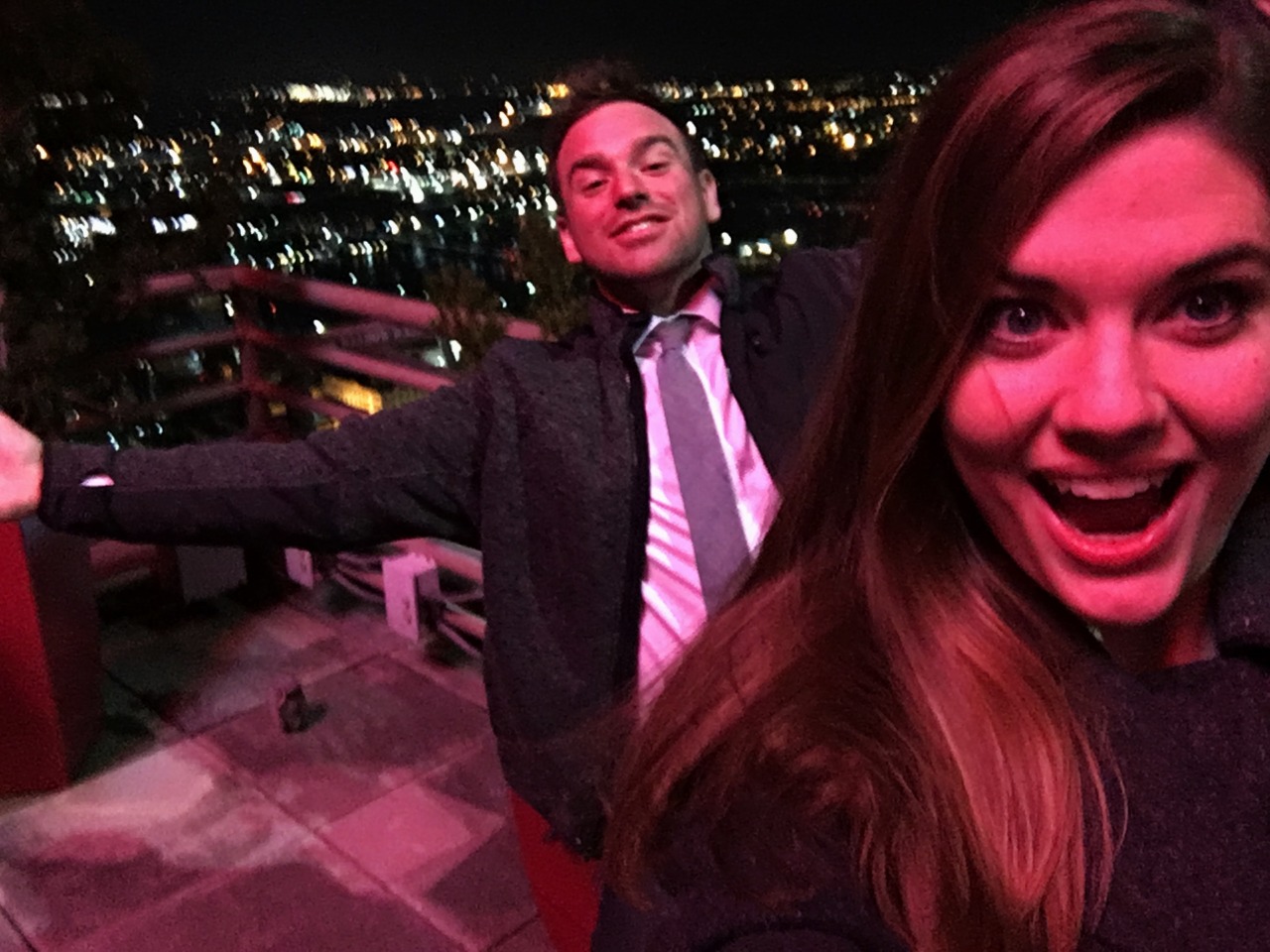Content warning: Mentions of body size, intentional weight loss, anti-fat bias. TL;DR: Big body feelings.
In my last blog post, I mentioned that there have been a lot of complicated conversations in my head that I want to move to this blog. It’s easier said than done, because these discussions are deep in the weeds about bodies, diet culture, anti-fat bias, and honestly, just existing in a fat* body. Yet, I feel like there are others out there who are also trying to negotiate these same big feelings. Maybe this post will make you feel less alone, or at the very least, show you a perspective that may be different than your own.
(*fat is the neutral descriptor I use for my body size)
People on my Instagram feed are getting noticeably smaller, and it’s stirred up a lot of big feelings and body image ghosts that I thought were in my past.
First, some important framing and background about the spirit of this discussion:
- I believe in bodily autonomy – people have the right to make decisions about their bodies without outside influence or judgment. What other people do with their bodies isn’t any of my business.
- I was put on my first diet at age 6 and have participated in most fad diets under the sun: Weight Watchers, shakes, dangerous weight loss drugs like Fen-Phen, HGC shots, 500 calorie days, 4 years at fat camp, years of low carb, compulsive overexercising, and (no surprise) an eating disorder. I’ve lost and gained hundreds of pounds, fighting my body constantly to be smaller.
- I stopped intentional weight loss (IWL) efforts in my mid-30s (I’m 42 now). I worked hard to understand the origins of fatphobia and the intricacies of anti-fat bias. Now that I have learned to live a life where my self-worth isn’t tied up in a number on my pants or on the scale, I feel a lot of compassion for this container I live in after a lifetime of trying to make it something else.
- Even though I stopped IWL, I am not ignorant of the fact that many aspects of my life would be easier if I were smaller. On the continuum of sizing, I am considered a “superfat.” I am at the highest end of plus size stores (and even outside the sizing offered by many plus size brands), and have difficulty fitting into many public spaces – chairs too small, booths too narrow, furniture not feeling stable enough, etc. There is a lot of labor involved in determining if a space might be comfortable for me. Whenever thoughts of IWL pop up for me, it’s always in the context of wanting to fit better so I am not restricted in my activities.
- I’m not referencing specific creators/influencers and am not looking to cause drama. I’m simply explaining my reaction to these changes and how I unpacked them. The way I react to this change could vary drastically with someone of another mindset or lived experience, so I am centering myself in this conversation.
- There’s a broader discussion happening about the potential harm caused by people talking about their intentional weight loss to their followers who specifically followed them because they’re plus size, but that’s 100% not within the scope of this post. Dissection of harm brings in the complexity of impact vs. intention, the emotions we all have tied to our size, our dieting histories, lived experiences, implicit and explicit fat bias, thin privilege, and more. I’m not touching that tangled ball of yarn today!
Big Body Feelings
In the past 6 months, I’ve gone from feeling fairly neutral about my fat body to having bouts where I feel like I’m severely flawed. Nothing about my body has changed in that time: My activity level has remained high, with no disordered eating, no health changes, and no change in clothing size – yet I find myself backsliding into negative self-talk that I thought I left behind years ago.
What has changed is my perceived hostility to fat bodies in society. There are so many signals that there’s a rapid backsliding of all of the “body positivity” and inclusivity work that was painstakingly performed over the past 15+ years. There’s been incessant coverage of weight loss drugs, emboldened internet trolls, and dwindling plus-size fashion options. BIG FEELINGS are circulating – vibes are off.
When I started this blog nearly 15 years ago, I had no idea that online communities would become a common thing. I was deep in the throes of trying everything at my disposal to lose weight (including auditioning for “The Biggest Loser” – big yikes.) The first time I entertained the idea that *just maybe* I didn’t have to shrink my body to be happy was when I stumbled upon the works of the confident and vibrant fat activists Lesley Kinsel of Fatshionista and Marianne Kirby of The Rotund. Ever since then, I’ve delighted in finding people online who kind of look like me and show up unapologetically as themselves. I may not have IRL friends who can relate to the unique challenges of being in a larger body, but I have experienced the genuine community that people online can provide. I expect that some of you follow me online because my body looks similar to yours and I (hopefully) give solid fashion recommendations that help you feel more confident in your style and shopping options. I follow people for similar reasons. So when multiple people on my Instagram feed start shrinking, I notice.
My mind can spiral at an alarming rate around many things (yay anxiety!), but weight and body image feelings spin faster than anything. The road to reaching “my body is wrong” messaging has been well-worn for decades. In recent months, the road has turned expressway and the thoughts come faster and hit deeper. With each shrinking person, I felt an increasing sense of dread, isolation, and frustration, and almost made a doctor’s appointment to see if I could also get in on this weight loss action. These are not feelings I’ve had in YEARS, and I knew I needed to dig deeper. If I value bodily autonomy, why are these photos making me feel awful? I know the horrible things I did to myself in the past to try to be smaller, and even worse, the deep depression that I had when the scale didn’t say what I wanted it to.
A Feelings Deep Dive
This might be a strange analogy, but for purposes of visualization, I hope it translates: Think of healthy body image similar to a healthy nerve that’s protected by tissue and a protective sheath. I’ve created an environment with my mental health, media consumption, and the people I interact with that makes me feel cozy and relatively protected. Sure, there may be a pinch from time to time, but in general, there’s no sustained pain or tenderness. But then, something starts to wear on that protective covering: stories about weight loss drugs everywhere, articles and flippant conversations about celebrity bodies, more stores removing plus sizes, another internet troll commenting on my body… that protection has disappeared. And then multiple times a day, I’m opening up Instagram and seeing people who previously shared styles I could buy now sharing things that I can’t. It feels like a tap dance on that exposed nerve. Then you see the post comments from others praising their bodies and asking for their weight loss secrets. *Tap, tap, tap.* Shooting pain. Outsized reaction internally. But…
My feelings aren’t their fault
and also my feelings are still valid.
One of the tools from therapy that I rely on most is a thought record. I’ve used it for years, and have found myself employing it many times over the past few months concerning my body. I’m not a mental health professional so please don’t take this as any sort of counseling advice – I’m just sharing my process. You can think of a thought record as a journaling exercise: very simple in the prompts, but not so simple because you have to face those aforementioned BIG FEELINGS.
- What is the situation that leads to the unpleasant feelings?
- What is the mood (sad, anxious, angry, etc), and how severe is it on a scale from 1-5 (1=good, 5=terrible)?
- What were the automatic thoughts that came right before the mood?
- Rate your belief in your automatic thoughts from 0-100%
- What are counter thoughts to your automatic thoughts?
- Rate your belief in your counter thought from 0-100%
These questions are excellent at stopping spirals and uncovering the root(s) of the issue(s), even if you don’t write everything out in order. You’re challenged to catch those running thoughts contributing to your mood and counteract them with facts so you can better interpret what you’re feeling.
Here’s a simplified example:
- Situation: Scrolling Instagram (probably while I’m procrastinating on something,) and see someone I follow whose body has gotten markedly smaller
- Mood (and severity): defeated (4), alone (3), betrayed (3)
- Automatic thoughts (and belief in those thoughts):
- Everyone is going to lose weight and I’m going to be even more of an outcast than I already am. (40%)
- People who I thought were safe or accepting of me aren’t anymore. (10%)
- What is wrong with me that I won’t just take a shot or try XYZ extreme diet again? (20%)
- Yet another person is abandoning the fat community. (10%)
- Counter thoughts (and belief in those counter thoughts):
- I believe in bodily autonomy and people are allowed to do whatever they want with their bodies for any reason. (100%)
- It is not my business to question the whys and hows of someone looking different than they did before. (100%)
- Size isn’t indicative of whether or not someone is safe or accepting in other situations, and shouldn’t be here either. (100%)
- I can physically and mentally feel the anguish I went through with pills and extreme dieting for decades just by thinking about it, and I am terrified to go back to that place. (100%)
- As more people take weight loss drugs, I fear that the judgment and assumptions people make about fat bodies are only going to get worse. (100%)
So while my feelings are valid, they’re not directed toward other people and they’re not as severe as I originally thought. Pausing to root in the counter thoughts helps me slow the negativity and uncover the real reasons I’m having these feelings. I’m able to sit down and think through things rationally. It doesn’t mean the feelings go away, but it does help me direct the questions in the right direction:
- Am I mad at these people? No. I’m frustrated at the weight loss drug discussions and jokes ad nauseam and the reintroduction of “thin is in” messaging/trends.
- Am I mad at myself or my body? No. I’m sad about the mental and physical anguish that I went through for decades and appreciate my body today and what it does for me. I’m sad about not being able to fit in places – that the world is harder to move through because bodies like mine were excluded. But I’m not sad about my body. It is not broken, it is just different.
- Why do I read the comments, and why do I feel like I need to join these people on IWL journeys? Because anti-fat bias is everywhere, including within myself. I am not mad that other people still hold the notion that smaller=better and smaller=celebration. But I am sad that it seems like we’re much farther apart than I believed a year ago.
After working through all those feelings, the facts are:
- I want to be able to exist peacefully in this world no matter my size.
- I don’t want people to make assumptions about my health, abilities, intelligence, or willpower because of my size.
- I want those in my life to fully accept me and understand that while my body may look different or require different accommodations than theirs, I am not less than.
- I want to continue to appreciate my body and recognize the work I put in to get to know it after decades of trying to change it to a form that society finds more acceptable.
Other people’s physical forms don’t affect any of these things. The frustration I have isn’t with them. That doesn’t mean that my reaction to them immediately goes away, or that my feelings are 100% resolved. There are issues here: they’re just much bigger than a few people’s smaller clothing sizes.
Moving Forward
Even though I logically understand the bigger issues at play, I’m still looking for ways to avoid feeling like my exposed nerve is being tapped on. Here are a few suggestions if you’re looking to quiet the noise.
- Unfollow, and do it without announcement – If seeing someone’s content is putting you into a headspace that is making you feel negatively about your body, or their content no longer serves your needs, click that Unfollow button and don’t think twice about it. Also, don’t announce your departure – you are free to come and go as you please. Sharing your disappointment only creates an opportunity for conflict that won’t change anything.
- Follow – Look for more people who represent the attitude and/or body type you wish to see more of in your feed.
- Reduce screen time in general – I work in social media, so this isn’t always available to me, but I am working on finding hobbies that are not on a device. I’m reading a lot more books (especially with positive fat representation) and started making Christmas ornaments with crystals.
- Deepen your IRL bench of safe relationships – It’s important to have people in your everyday life who accept you as you are and remind you of your value. I know that I’ve felt off in this area for a while, and it’s never fun to feel like you’re alone with your thoughts and no outlet. I work from home and am a child-free 40-something – getting out is a chore! I’m also guarded and find myself less tolerant of surface-level relationships, which doesn’t work when you’re trying to meet new people. I’m putting work into branching out and also fostering the relationships I have.
- Get the feelings out – Whether it’s writing in a journal, talking to your friends, or writing a 2700-word blog post 🫣, getting it out always feels better than keeping it in.
I expect that this next swell of weight loss discussion is only just beginning. BIG FEELINGS about bodies aren’t going away any time soon, but I sure hope we can talk about them more openly. Everyone deserves to be accepted for who they are, regardless of their size.








